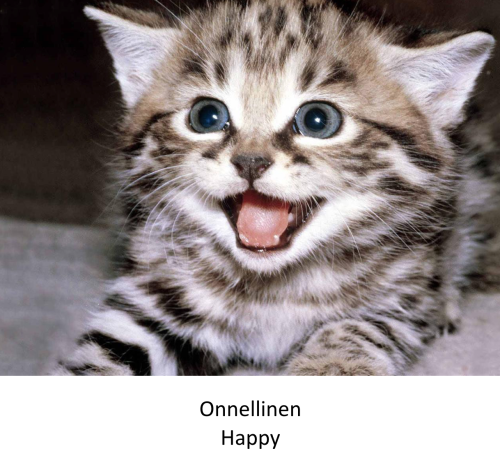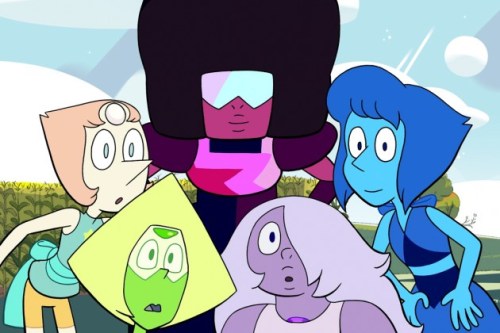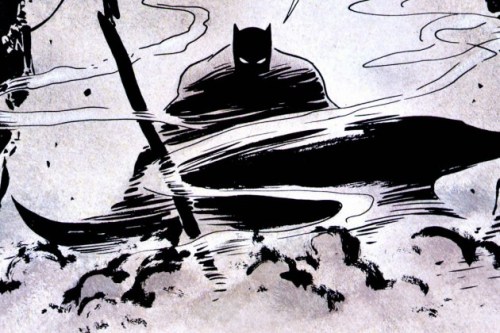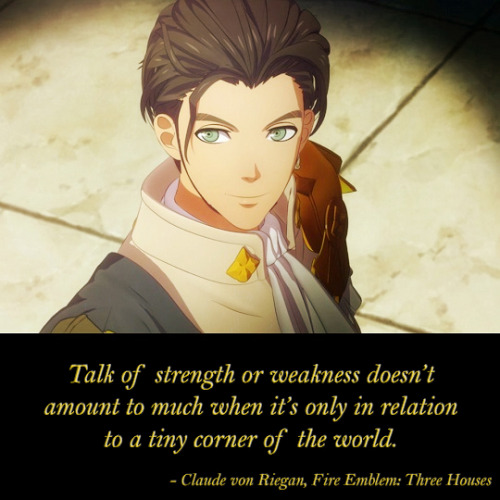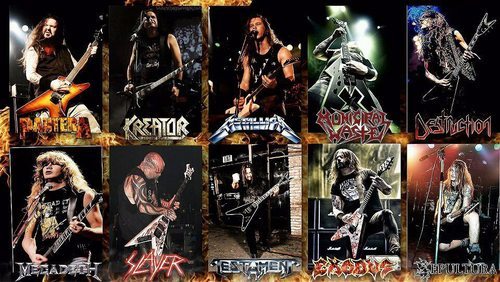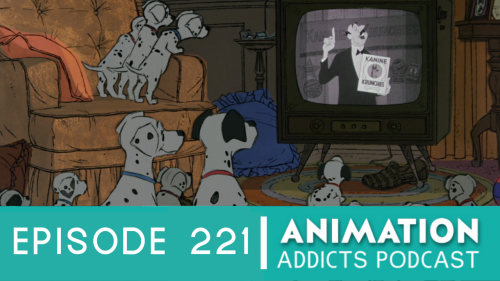#ranking
At U.S. Ping-Pong Open, Orthodox Estee Ackerman Ranks 6th
Keeping up with 13 year old Estee Ackerman takes work. After being named one of our Orthodox Jewish All Stars last year (here) she has only gained momentum. Estee is now ranked 6th for Cadet girls (15 years and under) for table tennis in the United States. She got this ranking after competing in the winter U.S. Nationals. The winter is a rough time for a teenage ping-pong champ, because training often takes a backseat to schoolwork. The U.S. Open, however, takes place during the summer – leaving Estee endless hours to train. It’s a good thing too, for the Open is made up of 100 events with 1100 people from 35 different countries.
Post link
Finland tops another happiness survey, yay! :) This time it’s the European Happiness Equality Index, calculated by the Danish Happiness Research Institute. The index is based on calculations of the standard deviation of the subjective wellbeing dimension of the latest European Social Survey and Finland stands out as the most equal country in Europe with a standard deviation of 1.35, whereas average standard deviation was 1.92. Well done!
If you want to see the full index report, you can download it from here: http://www.happinessresearchinstitute.com/home/4579836743
Post link
180614 Jung Young Hoon (K2 respresentative) (1):
“ K2 outdoor products are showing a great response this year.
Especially, the products worn by Suzy in pictorials account for 80% of sales. “
20′s Female #S grade (highest grade): Suzy, Park Bo Young, Park Shin Hye
(The ranking result is based on recent drama / film performance, gallups, advertising indicators and Korean Wave Research)
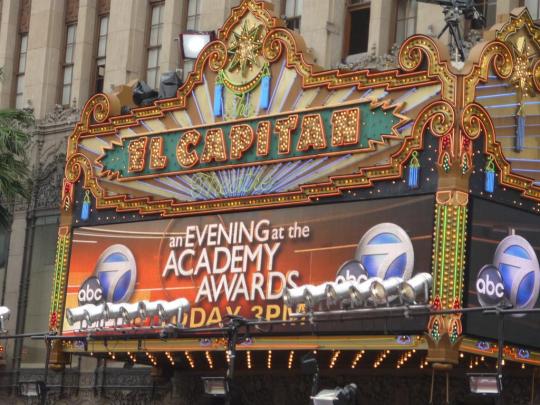
So tomorrow’s the big day, right? The day when Hollywood’s elite gather and decide what films are the best?
In genre fandom there’s a reflexive instinct to reject the Oscars, which has long dismissed (sometimes truly impressive) efforts by science fiction, fantasy, horror, and other genre filmmakers. I totally get that, even if it’s not always true (just look at this year’s nominees). But rather than grouse and complain about how we disagree with the Academy, I thought it would be more rewarding to talk about how we felt about the cinema of 2017.
It’s been a really good year, I think it’s hard to deny, even if Hollywood itself (and the world in general) has had a pretty awful one. Even some of the worst films I’ve seen were pretty darn good and the best were truly terrific. It’s also been a pretty stand-out year for genre films in particular, with some great additions to the horror and superhero canon in particular. With that in mind I’ve ranked every 2017 film I’ve seen and invite others to do the same.

19.Ayla by Elias
Ayla is one of two feature-length films I saw at Portland’s annual H.P. Lovecraft Film Festival at the Hollywood Theatre, an experience I can heartily recommend to anyone in the Pacific Northwest who loves horror or weird fiction. The basic premise of Ayla is that a young man who lost his sister as a child and is unable to let go of her memory finds what appears to be an adult and strangely mute version of his sister, who comes to occupy a central place in his life as he neglects every other part of his life, including his living family and friends. Essentially, Ayla is a story about loss and how it can consume us.
Out of all the debut films I saw this year, Ayla is unmistakably the weakest but that doesn’t mean its bad by any means. The central hook driving the story is a compelling one and the performances given by the film’s mostly unknown cast (Nicholas Wilder, Tristan Risk, Dee Wallace, and Sarah Schoofs in the lead) are actually quite good and do a great job of drawing you into the narrative. Unfortunately, the movie just kind of ends abruptly and there’s never really a satisfying explanation for why the protagonist is so obsessed with his dead sister (his other family members have all moved on… why hasn’t he?). Still, it’s a nice showcase for the cast and the director’s skills which are not insubstantial.

18.The Lego Batman Movie by Chris McKay
When it was announced that Warner Bros. had decided to make a spin-off of The Lego Movie centered on Will Arnett’s comically self-obsessed version of Bruce Wayne there was a fair amount of skepticism. Arnett’s Batman was funny but would the joke perpetuate itself for a full movie without becoming dull? The good news is no and The Lego Batman Movie not only is funny but actually tells a pretty decent story. The bad news is that it’s still mostly forgettable.
There’s nothing particularly wrongwithThe Lego Batman Movie but I have to confess that nearly a year later I barely remember it. I remember all the plot beats and who all the characters were but I don’t remember how I felt watching it. I remember the narrative theme and thrust of the story (“it’s braver to let yourself feel things for other people than to go it alone”) and I appreciated the thought behind it but it didn’t stick with me. Maybe that’s because I already feel that message has been told in more interesting ways. Maybe it’s because the movie never quite escapes the impression of being a merchandising cash-in, unlike The Lego Movie. I liked The Lego Batman, but ultimately I can’t give it more than a solid C in retrospect.

17.They Remain by Philip Gelatt
The other feature film I saw at the H.P. Lovecraft Film Festival, They Remain is an adaptation of Laird Barron’s “-30-,” directed by Philip Gelatt, perhaps best-known to science fiction fans as the screenwriter of Europa Report (an excellent film I also saw this year, but which came out many years earlier and so doesn’t qualify for this list). They Remain focuses on a pair of scientists (William Harper Jackson and Rebecca Henderson) who are sent by a nebulous corporate employer to study strange animal behavior at the former site of a murderous cult that made headlines years earlier. A dark and moody film, They Remain examines the nature of cults, the effects of isolation, and the relationship between humans and their environment.
I was pretty excited to watch They Remain, especially since it was the actual premiere of the film, shown to audiences for the first time. Europa Report really surprised me when I checked it out earlier this year and I was eager to see what Gelatt’s newest film looked like. For the most part, I was very pleased with what I got. Gelatt does a great job at getting into the head of his lead character and the sense of dawning paranoia and psychosis that begins to overtake him at the film’s story progresses. You feel, like him, that reality is unravelling around you. Unfortunately, the film also has a last-minute twist (which I assume is in the original story as well) that didn’t quite work for me and I never was quite sure whether the cult’s past activities were a red herring or an important plot point. Then again, part of the appeal is likely considering such questions for yourself.

16.Blade Runner 2049 by Denis Villeneuve
Man was there any movie this year sci-fi nerds were more hyped for and the general public just didn’t care about? Blade Runner 2049 has at this point become somewhat infamous for being hyped everywhere by every nerd site imaginable and then just sort of dropping to the sound of crickets chirping. Which isn’t to say it wasn’t very well-received in some quarters. Hyperbolically (in my opinion) some have proclaimed it to exceed the original Blade Runner (itself a notable flop at the box office but darling among sci-fi fandom) in every way. Personally? I found Blade Runner 2049 a beautiful and ambitious but ultimately failed endeavor towards profundity.
The frustrating thing about Blade Runner 2049 is that it starts a lot better than it ends (far from the only 2017 film to suffer from that problem). The opening sequence where K visits the old replicant to “retire” him (which remains a chilling euphemism) is terrific, as are many that follow as K tries to uncover the nature of the mystery he’s stumbled on to. It’s only towards the end of the film, about the time that Harrison Ford’s Deckard finally makes his appearance, that things really begin to fall apart and you realize the movie was full of good ideas it didn’t know what to do with (as well as many half-baked ideas that should have been shelved). It doesn’t help that virtually every female character in the film is either defined by her relationship to men, a sexist stereotype, or both. There were parts of Blade Runner 2049 that I really liked, but in the end I couldn’t love it.

15.Alien: Covenant by Ridley Scott
More than anything else on this list I think switching the places of Blade Runner 2049andAlien: Covenant will be a controversial choice. The funny thing though is that they share a lot in common for both good and bad, which may not be entirely coincidental considering they’re both follow-ups to Ridley Scott’s most widely praised films (even though Scott declined to direct Blade Runner 2049 in favor of Covenant). And like many I was pretty disappointed by Covenant when it finally debuted, though perhaps for different reasons than many (I’m very much on record as having been a big fan of Prometheus).
But despite Covenant’s confused narrative—which clearly wanted to be a sequel to Prometheus but got sidelined into being a more direct Alien prequel instead—I have to say that it stuck with me more. After I walked away from Blade Runner 2049 I rarely gave it another thought, at least after working out my disappointment. But Covenant is full of interesting ideas it actually commits to: the interplay of creation and destruction, the wrath of the created against the creator, and the nature of what it means to love. And if nothing else, Michael Fassbender provided was immensely enjoyable both as the Oedipal David and the gentler, kinder Walter.

14.Logan by James Mangold
Rounding out the three Michael Green scripts of 2017 (the guy certainly got around last year) is Logan, which is an interesting case in how far you can stretch the conventional boundaries of the superhero genre. It’s often been said that superhero films aren’t really a genre, with Marvel’s own Kevin Feige arguing that Captain America,Thor, and Iron Man actually represent different kinds of movies and whether or not you buy that argument it’s hard to argue that Logan isn’t a very different style of film than not only the aforementioned three but also Wolverine’s two previous solo outings. It has been described as a Western (though that itself is a very broad genre) and even noir but a typical superhero film it clearly is not.
I really liked Logan quite a lot when I saw it and had relatively few qualms with it other than some minor complaints about the ending. Hugh Jackman, Patrick Stewart, and Dafne Keen all give phenomenal performances and James Mangold was quite effective at weaving a story about aging, depression, and regaining hope. It didn’t really stick with me though and that’s one reason it doesn’t rate higher. Once I’d seen Logan I didn’t much think of it. Which is too bad because it’s very experimental style is something I’d like to see a lot more of in superhero films (more on that later).

13.Dunkirk by Christopher Nolan
There was a time when I was as big of a fan of Christopher Nolan as anyone. I was immensely impressed by Batman Begins when I saw it abroad in Britain back in 2005 and The Dark Knight only confirmed my intense affection for the way he reinvented Batman. It’s easy to forget now, given how slavishly DC and Warner Bros. have been (poorly) aping his style for over a decade now but Nolan’s take on the caped crusader was genuinely fresh when audiences first experienced it, wiping away not only the painful memories of Joel Schumacher’s take but also the still campy but more fun style of Tim Burton’s. And since then I’ve enjoyed pretty much every film Nolan has directed though with some reservations in a few cases.
I’m happy to say that Dunkirk is no exception: it’s a very solid piece of work that manages to be a war film where the war is actually horrifying and not simply a stage for rousing heroics. It’s fairly notable for not featuring any German characters at all: the enemy is entirely unseen which, although unconventional, is probably a far more accurate rendition of war than is usually portrayed in Hollywood films. The film does, however, fall victim to some of Christopher Nolan’s weaknesses as a director, lacking in compelling human characters to ground the action (though Cillian Murphy’s shell-shocked soldier, who goes unnamed, is a possible exception). Nonetheless, it’s worth seeing if you’re a fan of either Nolan or his frequent collaborator Hans Zimmer, who makes an already tense film even more riveting.

12.War for the Planet of the Apes by Matt Reeves
It’s often forgotten but the original Planet of the Apes film was not thought of as a particularly cheesy or silly film at the time. Released the same year as 2001: A Space Odyssey, the 1968 picture was considered thought-provoking and though the makeup has aged somewhat (the characters look more like humans than actual chimpanzees or orangutans) it remains pretty visually striking. So the fact that the new Planet of the Apes series (which is ambiguously framed as either prequels or a reboot) has garnered critical acclaim is less a course change than a course correction, getting back to the core of the first film and the novel it was based on before the more campy sequels came along.
Rise of the Planet of the ApesandDawn of the Planet of the Apes were startlingly good. Both dealt with the concept of consciousness, bioethics, the politics of revolution, and non-human animal rights with a deftness that one would rarely expect from a major studio blockbuster. War of the Planet of the Apes, unfortunately, is a bit more of what one might expect. It’s still good, but compared with the pitch perfect execution of RiseandDawn, it falters slightly. The villain is a little too simplistic, the arc of Caesar a little too predictable, and the plot basically just moves in a circle so that it’s not really clear if anything was learned or gained from the experience. It’s still worth seeing to finish out the new trilogy, but I’ll admit I was disappointed.

11.Spider-Man: Homecoming by Jon Watts
Given his recent faltering (as much a consequence of Sony Pictures’ financial troubles as anything else), one might be forgiven for thinking Peter Parker was a spent force in the superhero business. If you’re not familiar with comics or the merchandising that drives the genre, it’d be easy to assume the web crawling had long since been eclipsed by Iron Man or Captain America. And indeed, there’s hints of that in Homecoming, which features some heavy guest starring by Tony Stark and lots of references to the other Avengers. But Homecoming also proves that in the right hands, Peter’s still got a lot of storytelling potential.
Spider-Man: Homecoming is relatively unambitious by Spider-Man movie standards but where it aims it mostly hits on target. Compared with the cheeky melodrama of the Sam Raimi / Tobey Maguire films or the Batman Begins-style reboot of the Marc Webb / Andrew Garfield films director Jon Watts aims for a fairly simple coming-of-age story with actor Tom Holland at its center. And he more or less nails that. Holland’s Peter is a little self-centered, but in that very typically adolescent way we all are at a certain age and you can tell he means well. It helps that Homecoming grounds its whimsy with Michael Keaton’s take on the Vulture, which although hardly accurate to the comics makes for one of the Marvel Cinematic Universe’s better villains.

10.Guardians of the Galaxy, Volume 2 by James Gunn
WhenGuardians of the Galaxy originally debuted in 2014, no one would have guessed it would quickly become one of Marvel’s most celebrated films. Indeed, many industry analysts wondered what the hell Marvel was thinking, making a colorful space adventure powered by 1970s one-hit wonders and starring a talking tree and raccoon. But the skeptics were proved wrong and it’s probably no exaggeration to say that the Guardians now stand second only to Captain America and Iron Man in their impact on the Marvel Cinematic Universe. And so when a sequel was inevitably announced everyone got excited.
Perhaps it should prove no surprise than that Guardians of the Galaxy, Volume 2 is perhaps the most hotly contested Marvel film since Avengers: Age of Ultron. I’ve seen people who’ve been moved to tears by it while I’ve also seen people who loved the first film bored and disappointed by it. It is probably no coincidence that Guardians also centers itself much more tightly on the first film’s nominal lead, Peter Quinn, and the mystery of his parentage. For many this resulted in a male-focused film that lost some of the diverse charm of the original. But others (most compellingly Charlie Jane Anders) argued it allowed the film to tell a compelling story about the dangers of toxic masculinity and patriarchal mythmaking. Personally, I fall somewhere in-between. I saw and appreciated what Volume 2 was doing but I can also acknowledge why some people felt it fell flat.

9.Star Wars Episode VIII: The Last Jedi by Rian Johnson
Is there any bigger franchise in the world than Star Wars? Marvel, also owned by Disney, is certainly gunning for the title but the cultural impact of Star Wars, I would argue, goes far beyond what Marvel has achieved (so far). Indeed, Star Wars is so big and so popular that it’s really hard to remember just how weird the first movie was. But it’s worth going back through old interviews with the cast and crew and noting how no one(with the possible exception of Steven Spielberg) thought the movie would be a success, let alone a runaway hit that would spawn a massive media empire.
I’m noted among my friends and followers as being something of a grumpkin when it comes to Episode VII: The Force Awakens. Part of that is just how safe J.J. Abrams played it, opting for a story that more or less replicated the beats of Episode IV: A New Hope and a setting that saw a scrappy rebellion once more engaged against a massive authoritarian empire (at the cost of essentially making the original films seem pointless). Perhaps because of that, Episode VIII was a breath of fresh air. After the fun but largely empty adventure of The Force Awakens, Rian Johnson throws us into a more complicated and at times admittedly dorky version of Star Wars… which is really what the franchise has always been at its best. Obnoxiously cute porgs, goofy humor, and odd pacing, I’ll take them all in a heartbeat when coupled with a story that actually has something to say about the Force and which takes its characters seriously enough to show them fail.

9.Okja by Bong Joon-hoo
Netflix has has a bad run in recent months, with a number of high-profile releases that were widely ridiculed or outright slammed by audiences and critics alike. But not all of Netflix’s “original” pictures (actually usually produced by outside parties and then distributed by Netflix) have gone over poorly and last year one picture in particular garnered critical acclaim: Okja, South Korean director Bong Joon-hoo’s newest feature. And it is certainly worth a watch.
Okja is, at its core, about a young girl and her friendship with a strange, fantastical beast dubbed a “super pig,” and raised as part of a massive corporate publicity stunt to raise support for their genetically engineered food. Of course, that’s simplifying quite a bit. In truth, Okja is an incredibly complicated film, one that can simultaneously criticize the packaged meat industry and animal rights activists, which can make you bond with the suffering of a digitally generated meat animal while also not feeling immediately grossed out when her friends and family sit down minutes later to eat some chicken stew. It’s crazy, it’s twisted, it’s unnerving, and it’s very, very good.

7.Coco by Lee Unkrich
Pixar is one of those studios that I always feel a little bit ambivalent about. They’re indisputably full of great talent and they’ve made some great classics, but often when a new film of theirs is released I’ll confess to usually feeling no great urge to see it. I think part of it is that they’ve been so successful that they crowd out most other animation studios and styles, to the point that even non-Pixar films often imitate their look and style. As a fan of traditional animation as well as animated films that aim at a more adult crowd, I’ll admit that bothers me a little. But every time I actually go and watch a Pixar film I’m almost always pleasantly surprised.
Coco is a really great example. I wasn’t exactly sure whether or not I’d enjoy Pixar’s take on Mexican spirituality, though I did make note of the fact that the studio made a special effort to do its research and hire Latin American performers. When I actually saw it though I was won over completely. Coco is an incredibly beautiful film, with rich music and a genuinely moving story about family, loss, and creativity. It is very easily the best Pixar movie I’ve seen in many years and quite competitive against the likes of Toy Story,Finding Nemo, and The Incredibles. So much for my biases.

6.It (Chapter One) by Andy Muschietti
I wasn’t always a horror fan. For a long time I actively avoided horror and was easily spooked by even the most timid forays into the genre. I’d convinced myself that as a person who was naturally anxious, who avoided the appearance of danger reflexively, horror films would ruin me. I eventually learned, however, that the opposite was true. Given the opportunity to experience fear within a confined, prepared context, I actually found I felt liberated. And I also gradually realized, looking back on my childhood, I’d actually always enjoyed getting a little bit scared from time to time.
It, based on one of horror giant Stephen King’s most famous novels, touches on some of that experience. It positions a group of children as the main characters, unusually for a horror film aimed at adults (as opposed to a children’s fantasy film with horror elements) but it largely works, in part because it reminds us how easy it is to feel as children that something lurks in the shadows that adults won’t tell us about. The film is not perfect—it telegraphs some of its scares too early and is uncomfortably comfortable with sexualizing its female lead, Beverly Marsh—but it is a very good example of a horror film that touches on the psychology of fear and the importance of confronting that which frightens us. I’m definitely looking forward to seeing how the second part turns out.

5.The Shape of Water by Guillermo del Toro
Technically, I didn’t see The Shape of Water until this year. But since it came out in 2017 and everyone’s going to be talking about it over the next few days I felt it was important to include. I often feel Guillermo del Toro is one of those directors who simultaneously gets too much and too little credit. He’s by far one of his generation’s best visual storytellers, with an expert eye for set design and special effects that is scarcely rivaled. He also sometimes tends to write simplistic stories with very easy to follow themes and easily identifiable heroes and villains. So I wasn’t sure what I’d think of The Shape of Water. The answer is that it may be del Toro’s most complex film yet.
That’s a heavy claim of course, given how excellent Pan’s Labyrinth is. But del Toro something does here he never does in any of his previous films (to my recollection) which is write actually complex, nuanced characters. The Asset, del Toro’s male romantic lead, is beautiful in that strangely monstrous way del Toro loves and full of love—but he’s also not above eating domestic animals, which reminds us he’s not human and a little dangerous. Colonel Strickland is a horrible human being in the same mold as Captain Vidal from Pan’s Labyrinth—but he’s also not completely dehumanized here and we get a sense of the pain and desperation that drives him as well. Of course, the real star is Elisa Esposito, the film’s mute heroine who nonetheless never feels voiceless and whose earnest desire to be accepted and loved is moving and universally relatable.

4.Get Out by Jordan Peele
Was it a good a year for horror or what? Not every film was a hit but there were certainly a lot of really high profile releases explicitly labeled as horror in 2017 as well as a number that arguably touch on the genre’s edges (such as Dunkirk,Blade Runner 2049,Okja, and The Shape of Water). And the year’s horror extravaganzas arguably started with Get Out, one of the most talked about movies of the year and the long-form directorial debut of renowned actor and comedian Jordan Peele.
What is there to say about Get Out without entirely spoiling its premise or the major surprises? That it’s a horror film viewed through the lens of a black man’s experience in a white-dominated culture? That’s true but seems reductive. That it manages to be both deeply disturbing and laugh-out-loud funny, sometimes within the span of a single scene? Also true. That it will probably make your skin crawl and cause you to question some of your very basic assumptions about the black experience if you’re not black? Definitely. Altogether, Get Out deeply deserves every accolade its earned and makes a very compelling claim for required viewing in the horror genre as well as the examination of race in American cinema.

3.Wonder Woman by Patty Jenkins
If there’s one movie that’s felt neglected at this year’s Academy Awards after generating a huge amount of conversation it is without a doubt Wonder Woman. After debuting to nearly universal praise and an immense box office return (making it the highest grossing DC Comics movie ever without Batman as the lead character) it has been curiously overshadowed in this year’s accolades, especially considering the arguably favorable timing in the age of Trump and #metoo. Perhaps it’s because there are so many other good films to choose from. But for my money Wonder Woman beats many of them.
Wonder Woman is not a perfect film but is definitely excellent. Featuring a compelling and passionate lead in Gal Gadot and built around a story about war, fear, and why helping people matters even if they’re flawed, Wonder Woman impressed and thrilled me… and I’m not even a fan of the character (nothing against her, I just haven’t read the source material). I also have to give the film a big thumb’s up for telling possibly the best love story in a superhero film since Captain America: The First Avenger and for doing so in a way that centered the female gaze. Also, as someone who’s been continually frustrated with how small Marvel’s gods seem, it was gratifying to see some truly mythic mythology in Wonder Woman.

2.Thor: Ragnarok by Taika Waititi
Of course, Marvel had to come along the same year and prove that they can do gods right. I’ve never been as much of a critic of the Thor films as many others have—I thought the first Thor, while silly also had a great message and genuinely great chemistry between its too leads (I for one will miss Natalie Portman, who’s sorely underrated). But there’s no denying they’ve often felt trapped between embracing the melodramatic and mythopoeic origins and staying true to the style and trappings of the Marvel Cinematic Universe. But finally, with New Zealand’s talented son Taika Waititi, someone got it justright.
My greatest fear, going into Thor: Ragnarok was that, like previous Thor films it would be silly but forgettable. That the trailers seemed to be aping the style of the the Guardians of the Galaxy films did not do much to alleviate this feeling. But that was very much not the case. Far from being just a silly romp (which some critics still described it as), Ragnarok is actually a great story that examines the core of who Thor is, both as a Marvel superhero and as an actual, literal god. It also happens to be very funny. But ultimately it’s not the laughs that won me over. It’s Odin’s speech to his son about what it means to be a god, the responsibility that entails, and why it’s the ideas that matter, not the thingsorplaces we associate with them.

1.Atomic Blonde by David Leitch
As aforementioned it was a great year for horror. It was also very clearly a pretty good year for superheroes, with both Marvel and DC breaking out of their usual patterns. My number one favorite film was not, however, a superhero or horror film. It was a spy film, a genre for which I have great affection but which has become neglected in recent years. I am, of course, talking about Atomic Blonde.
I’ve never seen the John Wick films—a personal failing many of my friends are happy to remind me of—but if they’re anything like Atomic Blonde, directed by one of the men behind the camera of those films, I understand the love. Atomic Blonde is a pitch perfect spy film, combining intrigue, frenetic action, and the sexy thrills we’ve come to expect from the genre in a seamless fashion. It also happens to have come out right at the peak of 80s nostalgia but while the film makes extensive use of an 80s soundtrack for excellent effect, it doesn’t feel trapped by that style the way many other projects do. Atomic Blonde is without a doubt a modern film, doing things with cinematography and choreography I didn’t even know were possible. I can’t recommend it enough.
And that’s it me for me. I don’t even remotely expect my ranking to line up perfectly with any of yours (heck, my ranking changed several times writing this) but I’m curious. What did you love? What did you hate? Share your thoughts in the comments.










1. Dune
2. The Harder They Fall
3. Belfast
4. Zola
5. CODA
6. C’mon C’mon
7. Drive My Car
8. Bergman Island
9. Coming Home in the Dark
10. Tragedy of Macbeth
Note: All of these films have bigger casts than what is pictured, I just couldn’t get a single still with every cast member included.
See the Top 10 Film Ensembles of 2020!

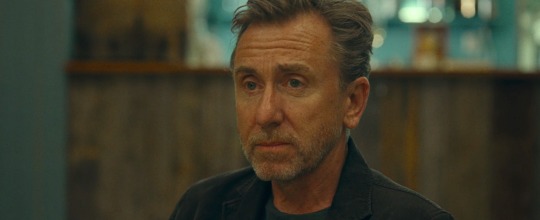
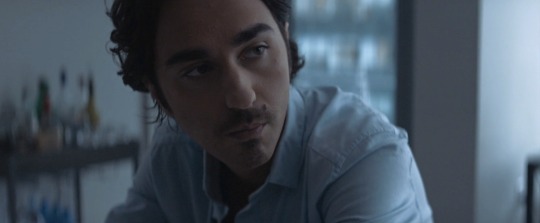
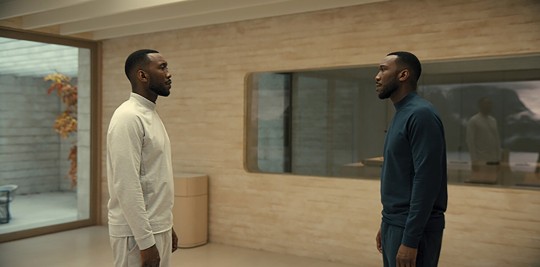


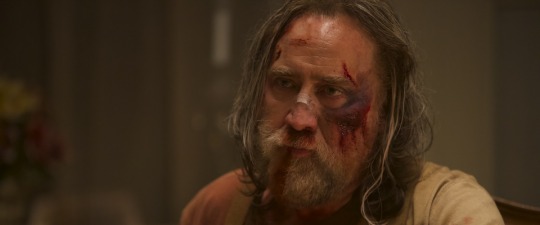

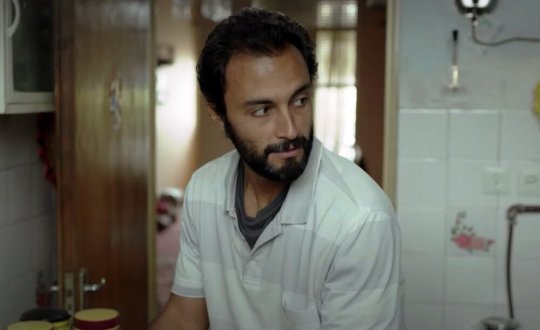

1. Dev Patel (The Green Knight)
2. Tim Roth (Bergman Island)
3. Alex Wolff (Pig)
4. Mahershala Ali (Swan Song)
5. Colman Domingo (Zola)
6. Troy Kotsur (CODA)
7. Nicolas Cage (Pig)
8. Dan Stevens (I’m Your Man)
9. Amir Jadidi (A Hero)
10. Denzel Washington (Tragedy of Macbeth)
I’d be remiss not to also mention: Woody Norman in C’mon C’mon, Hidetoshi Nishijima in Drive My Car, Jim Cummings in The Beta Test, Mads Mikkelsen in Riders of Justice, Lars Brygmann in Riders of Justice, Daniel Durant in CODA, Jack Roth in Till Death, Dave Davis in The Vigil, Jude Hill in Belfast, Owen Campbell in My Heart Can’t Beat Unless You Tell It To
See the Top 10′s from 2020, 2019,2018,2017,2016,2015,2014,2013!
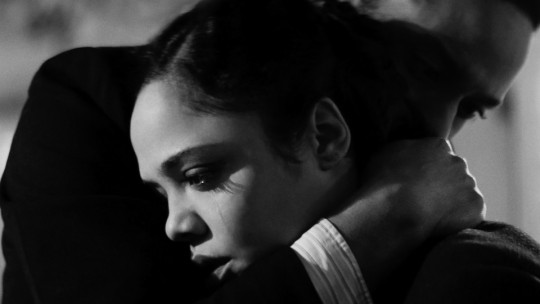

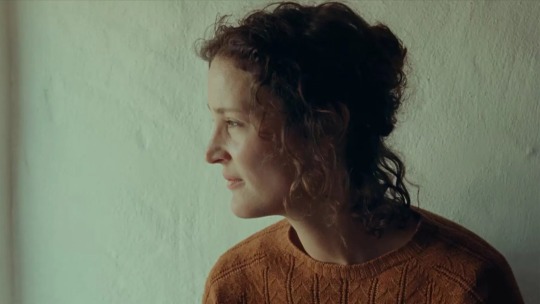
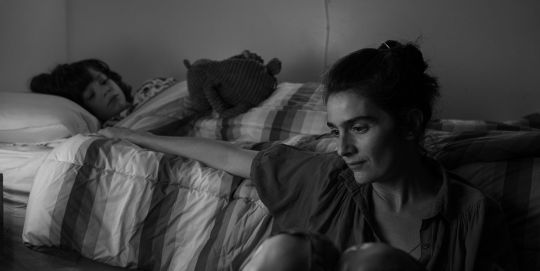
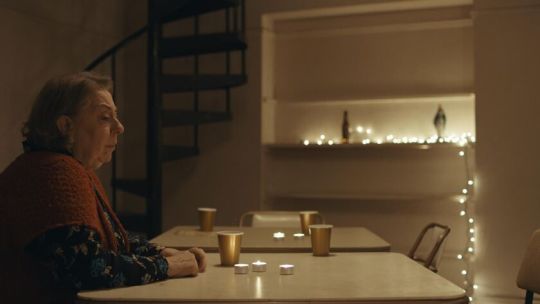

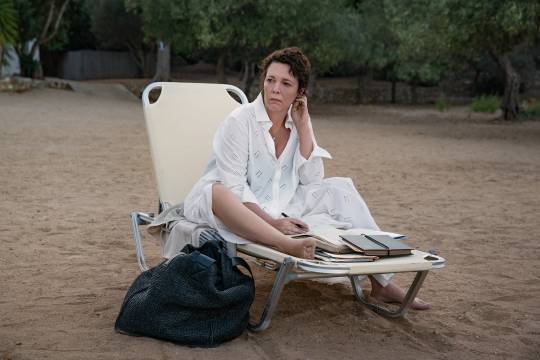
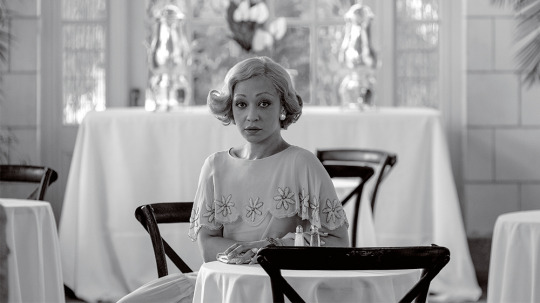
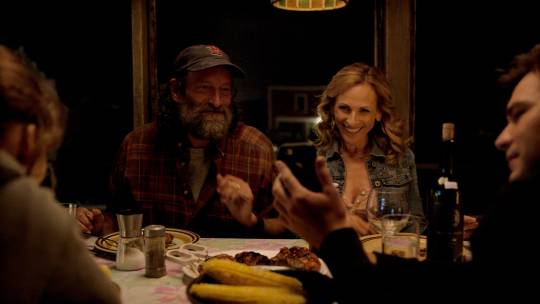
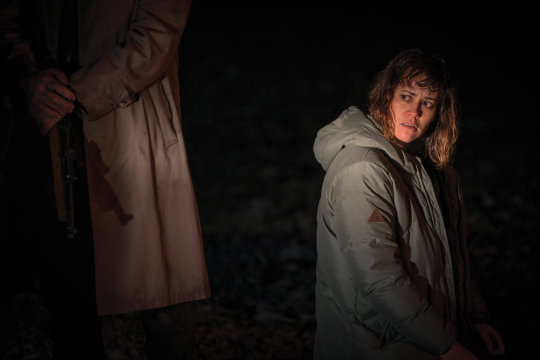
1. Tessa Thompson (Passing)
2. Taylour Paige (Zola)
3. Vicky Krieps (Bergman Island)
4. Gaby Hoffmann (C’mon C’mon)
5. Jayne Houdyshell (The Humans)
6. Aoba Kawai (Wheel of Fortune and Fantasy)
7. Olivia Colman (The Lost Daughter)
8. Ruth Negga (Passing)
9. Marlee Matlin (CODA)
10. Miriama McDowell (Coming Home in the Dark)
I’d be remiss not to also mention: Emilia Jones in CODA, Rebecca Ferguson in Dune, Regina King in The Harder They Fall, Eugénie Derouand in The Advent Calendar, Ingrid Sophie Schram in My Heart Can’t Beat Unless You Tell It To, Mia Wasikowska in Bergman Island
See the Top 10′s from 2020, 2019,2018,2017,2016,2015,2014, & 2013!






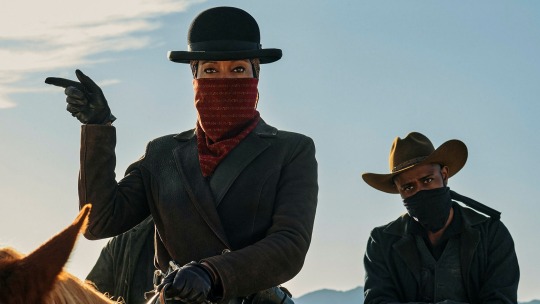

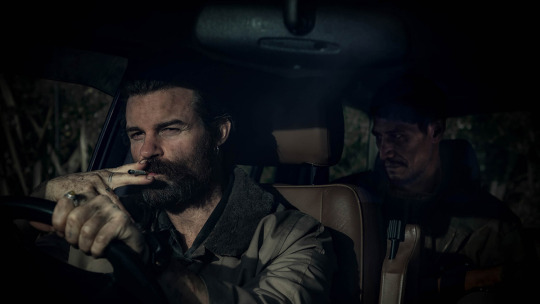

1. CODA
2. Wheel of Fortune and Fantasy
3. Pig
4. Dune
5. Zola
6. C’mon C’mon
7. The Harder They Fall
8. The Green Knight
9. Coming Home in the Dark
10. The Lost Daughter
Also recommend: Tragedy of Macbeth, A Hero, Drive My Car, I’m Your Man, Bergman Island, Don’t Look Up, Passing
*I haven’t been able to see “Licorice Pizza” yet
Władimir Putin
Angela Merkel
Barack Obama
Papież Franciszek
Xi Jinping
Bill Gates
Janet Yellen
David Cameron
Narendra Modi
So, I finally finished reading Husain Haddawy’s 1990 translation of the Arabian Nights (and the 1995 supplement containing the stories of Sindbad the Sailor, Ali Baba and the Forty Thieves, Ala al-Din and the Magic Lamp. In order to pat myself on the back for that accomplishment, here is a ranking of all those stories in order of how much I enjoyed them.
(General CW about the stories themselves: racism, misogyny, sexual violence, regular violence, occaisional anti-semitism. This list doesn’t go into details.)
- The Three Apples — This story starts out as a `whodunit’ murder mystery that is quickly (if a little anticlimactically) resolved, but then launches into the story of `The Two Viziers, Nur al-Din Ali al-Misri and Badr al-Din Hasan al-Basri’ which I found the most entertaining and memorable of the stories in the Nights.
- The Porter and the Three Ladies — The is in my opinion the best frame tale in the Nights, beating out `The Hunchback’ and `The Fisherman and the Demon’ more narrowly and `The Merchant and the Demon’ by a wide margin. In my opinion it had the best mix of strange symmetry, recurring themes, and taunting suspense. Quite memorable.
- Qamar al-Zaman and His Two Sons — This story really has two parts, the first is the story of Qamar al-Zaman and his beloved, and the second is the story of the two sons. In my opinion, the first part is the best tale is the most skillful combination of the motifs that recur throughout the Nights—demon matchmakers, fated lovers and far-off cities full of murderous Magians—but the second part wasn’t really to my liking. The first part had what seemed to me to be interesting queer things happening and allowed its women to be characters, but the second part was solidly hetero and misogynist in its characterization.
- Jullanar of the Sea — This story is much more fantastical than most of the Nights, in that much of the action takes place under the ocean, where a race of wealthy and magical people live. It’s one of the better `questing for a marriage’ and `struggling to return from a distant land’ tales.
- The Hunchback — The frame tale here is not quite as good in my opinion as `The Porter and the Three Ladies,’ but it ranks pretty highly if only on the virtue of the unnamed barber character, whose wonderful combination of self-awareness and un-self-awareness is definitely a comic highlight of the Nights.
- The Fisherman and the Demon — Again, this is mostly a so-so frame story, but the end (the story of the enchanted king) is very good and classic.
- Ali Baba and the Forty Thieves — I kind of knew this story going in, but only from a half-remembered episode of Wishbone. The original was fairly good and exciting, but Ali Baba does very little in it; almost all the ingenuity in the story is thanks to his slave, Marjana, who is rewarded by being freed and married to Ali Baba’s son.
- Sindbad the Sailor — I was honestly a little disappointed by Sindbad. Some of the voyages have memorable moments, but overall I found the seven voyages very repetitive.
- The Slave-girl Anis al-Jalis and Nur al-Din Ali ibn-Khaqan — In general I found the romances of the Nights pretty dull. It’s a lot of two people, both `as beutiful as the full moon’ swooning over how beautiful the other one is. ‘Qamar al-Zaman’ was like that too, but it was full enough of over interesting things to make it to the top section of my list. 'Anis al-Jalis and Nur al-Din Ali ibn Khaqan’ is mostly memorable for the more or less inexplicable way that the Commander of the Faithful Harun al-Rashid disguises himself as a fisherman and personally fries up fish just in order to inveigle his way into a party with the lovers.
- The Merchant and the Demon — The first story, and the one that is best-connected to the overall frame of 'King Shahrayar and Shahrazad.’ It’s not bad, but not especially memorable in my book, and is the weakest frame tale in the Nights.
- King Shahrayar and Shahrazad — Part of this story is definitely the most well-known part of the Nights. The less well-known part, however, is the extreme preoccupation with women’s sexual fidelity. This story is all about men reacting to their wives’ adultery in exaggerated but never actually punished by the narrative ways.
- Ala al-Din and the Magic Lamp — As I had been told, the original 'Ala al-Din and the Magic Lamp’ is very different than the Disney version. However, I was very much not impressed by it. I found that Ala al-Din’s only character growth was in money and privilege, and his solution to every problem was just to wish for it. I didn’t find any charm in the character.
- Nur al-Din Ali ibn-Bakkar and the Slave-girl Shams al-Nahar — As I said earlier, I didn’t really care for most of the romances in the Nights. This was my least favorite. The only entertaining moment is when the lovers are kidnapped by bandits who then return them because they’re so impressed by how beautiful they are. Other than that it’s just the lovesick pining of two people who have only actually met each other twice or three times for pages and pages.
Why do we measure freedom? Because freedom is inherently valuable and plays a central role in human progress.
The United States ranks 17th in the fourth annual Human Freedom Index (HFI), the most comprehensive measure of freedom ever created for a large number of countries around the globe. Overall, the report finds global freedom has fallen slightly since 2008.
“The Rule of Law continues to be a weak point for the United States, which has relatively low ratings when it comes to such areas as the protection of property rights, the enforcement of contracts, and criminal justice,” says co-authorIan Vásquez. “The Rule of Law plays a fundamental role in upholding liberty, so anyone who cares about freedom in the United States should be concerned with its evolution.”
Explore the 2018 Human Freedom Index — released today in honor of Human Rights Day — and see how your country ranks. Then, join the conversation on Twitter with #FredomIndex18…
WTW March Madness: Day 26

Ranking of my characters from most to least likely to sell you to Satan for one corn chip:
Okay this will be the most ridiculous ranking I’ve ever done, but here we go! (Ranked from most likely to least likely)
- Isobel (evil faery)
- Enya Arati (hungry dragon girl)
- Gudrun Siegfrieden (grumpy dwarf wife)
- Kairi Kailani (business-minded siren sister)
- Saoirse Dearbháil (immoral mage)
- Sereia (mysterious nymph)
- Talib (proud elafid)
- Meara Kailani (clueless siren)
- Dietbert Siegfrieden (loyal dwarf)
My protagonist(s)’s vices or bad habits:
- Enya tends to ignore her girlfriend Meara completely after they had a fight while Meara wants to talk it out after a fight and will annoy Enya until they had a proper discussion; if necessary, she will annoy her for days to come
- Saoirse likes to seduce men and women, but leave them hanging in desperation because she doesn’t want to have sex with them, she just needs to feel wanted and get compliments
- Meara bites her nails when she feels anxious
- Dietbert laughs really loud about his own jokes and if others don’t join in his laughter, he laughs even louder
- Gudrun, Dietbert’s wife, likes to start fights over little things and throws things at her husband when she is really angry
- Kairi rats her younger sisters out and immediately tells their parents whenever they did something wrong
- Talib secretly smokes herbs that have a hallucinating effect
WIP only tag list (comment+ if you want to be added or - to be removed): @matcha-chai@callmepippin@zettelkaestchen@silversynthesis@ladywithoringes@stargazingandpoetry@scaevolawrites@hysteriwah@eos-writes



